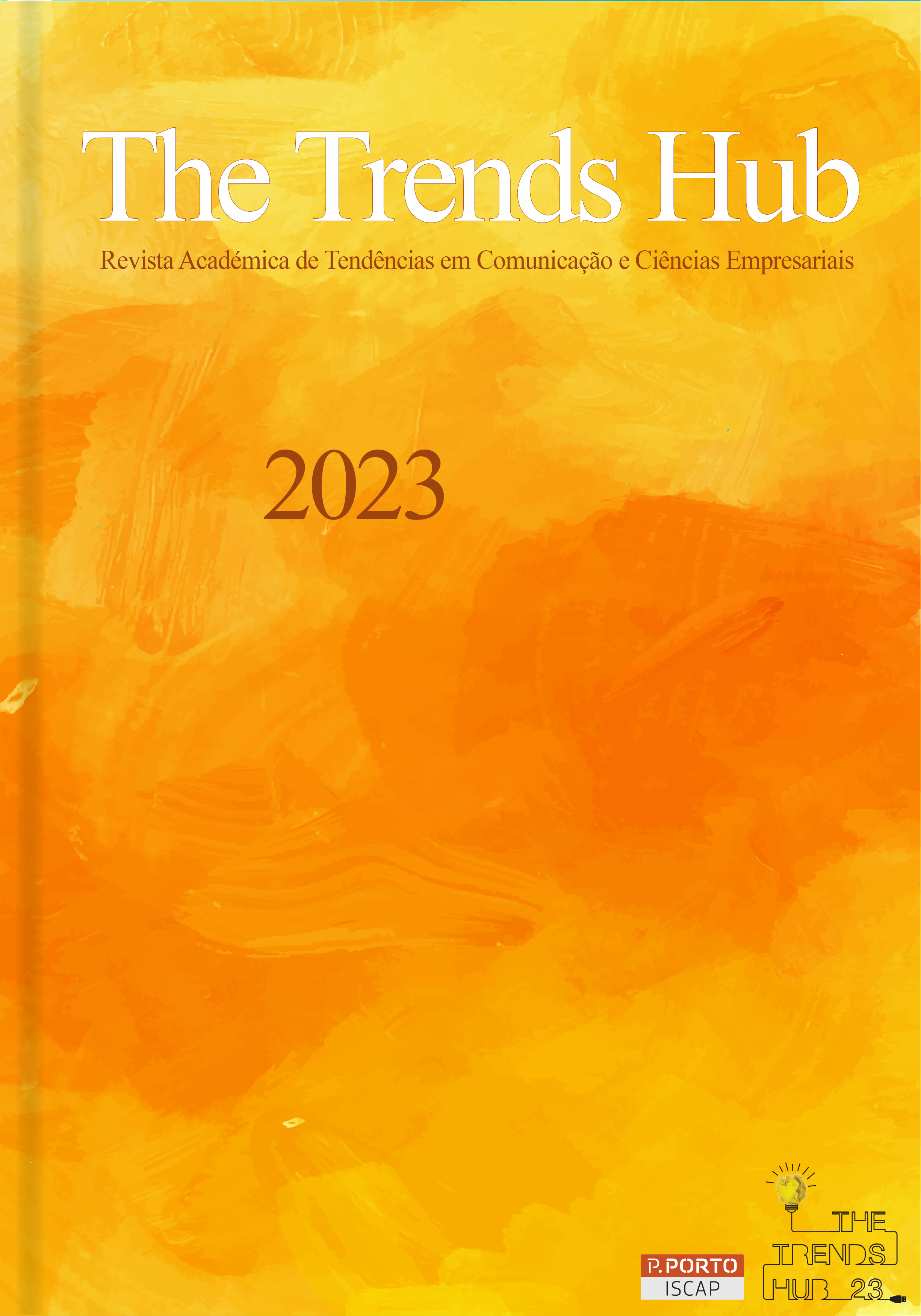A Cultura do Cancelamento e o 'Politicamente Correto' na hora de comunicar
DOI:
https://doi.org/10.34630/tth.vi3.5030Palavras-chave:
Cultura do Cancelamento, Politicamente Correto, Comunicação, Liberdade, ExpressãoResumo
A Cultura do Cancelamento tem sido um assunto controverso nos últimos anos e uma das maiores dúvidas que se impõem é se esta tendência é realmente benéfica para a sociedade. Com a ascensão do "politicamente correto", a forma como expressamos as nossas opiniões também tem sido afetada, levantando questões sobre até que ponto podemos ser honestos e autênticos sem ofender ou prejudicar os outros. Neste artigo, explorarei os prós e os contras da Cultura do Cancelamento e do “politicamente correto” na comunicação, discutindo os seus impactos na sociedade e a forma como podemos promover um ambiente online mais seguro e saudável.
Referências
Ahuja, N., & Kerketta, J. (2021). The Omnipresence of Cancel Culture: A Balanced Contrast. International Journal of Humanities and Social Sciences, 11(1), 33-41. http://www.ripublication.com/ijhss21/ijhssv11n1_05.pdf
Barberá, P., Jost, J. T., Nagler, J., Tucker, J. A., & Bonneau, R. (2015). Tweeting From Left to Right: Is Online Political Communication More Than an Echo Chamber? Association for Psychological Science, 26(10), 1531–1542. https://doi.org/10.1177/0956797615594620
Baumann, F., Lorenz-Spreen, P., M., S., Igor;, & Starnini, M. (2020). Modeling Echo Chambers and Polarization Dynamics in Social Networks. Physical Review Letters, 124(4), 48301-48301. https://doi.org/10.1103/PHYSREVLETT.124.048301
Chiou, R. (2020). We Need Deeper Understanding About the Neurocognitive Mechanisms of Moral Righteousness in an Era of Online Vigilantism and Cancel Culture. Ajob Neuroscience, 11(4), 297-299. https://doi.org/10.1080/21507740.2020.1830872
Cinelli, M., De Francisci Morales, G., Galeazzi, A., Quattrociocchi, W., & Starnini, M. (2021). The echo chamber effect on social media. Proceedings of the National Academy of Sciences, 118(9), e2023301118. https://doi.org/doi:10.1073/pnas.2023301118
D. Clark, M. (2020). DRAG THEM: A brief etymology of so-called “cancel culture”. Communication and the Public, 5(3-4), 88-92. https://doi.org/10.1177/2057047320961562
Dzenis, S., & Faria, F. N. (2020). Political Correctness: the Twofold Protection of Liberalism. Philosophia, 48(1), 95-114. https://doi.org/10.1007/S11406-019-00094-4
Hundt, M., Schneider, B., El-Assady, M., A. Keim, D., & Diehl, A. (2017). Visual Analysis of Geolocated Echo Chambers in Social Media. The Eurographics Association, 125-128. https://doi.org/10.2312/EURP.20171185
Langham, J., & Gosha, K. (2018). The Classification of Aggressive Dialogue in Social Media Platforms. ACM SIGMIS Conference on Computers and People Research 60-63. https://doi.org/10.1145/3209626.3209720
Marsili, M. (2023). State-driven Hate Speech: From Nazi Germany to Date Conference on Freedom of Expression, Hate Speech, and Religious Freedom: A Human Rights Perspective, New York. https://dx.doi.org/10.5281/zenodo.7487198
Norris, P. (2020). Closed Minds? Is a ‘Cancel Culture’ Stifling Academic Freedom and Intellectual Debate in Political Science? Social Science Research Network. https://doi.org/10.2139/SSRN.3671026
Owen, J. J. (2005). The Tolerant Leviathan: Hobbes and the Paradox of Liberalism. Polity, 37(1), 130-148. https://doi.org/10.1057/PALGRAVE.POLITY.2300004
Rosenblum, M., Schroeder, J., & Gino, F. (2020). Tell it like it is: When politically incorrect language promotes authenticity. Journal of Personality and Social Psychology, 119(1). https://doi.org/10.1037/pspi0000206
Rosenfeld, M., & Bollinger, C. L. (1987). Extremist Speech and the Paradox of Tolerance. Harvard Law Review, 100(6), 1457-1481. https://doi.org/10.2307/1341168
Toler, L. (2022, 14/04/2022). The Mental Health Effects of Cancel Culture. Retrieved 08/04/2023 from https://www.verywellmind.com/the-mental-health-effects-of-cancel-culture-5119201
Downloads
Publicado
Como Citar
Edição
Secção
Licença
Direitos de Autor (c) 2023 The Trends Hub

Este trabalho encontra-se publicado com a Licença Internacional Creative Commons Atribuição-NãoComercial-SemDerivações 4.0.


